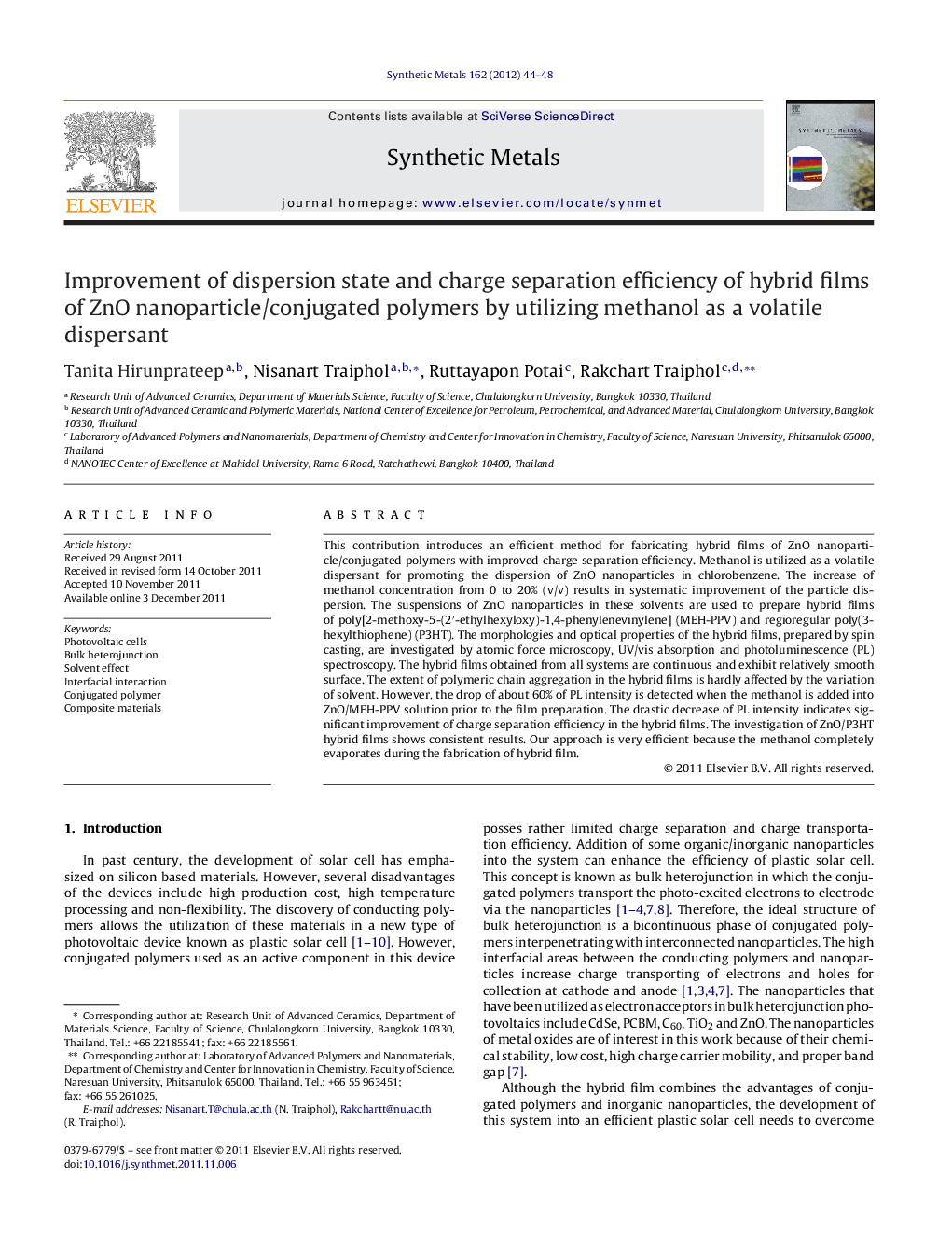| Article ID | Journal | Published Year | Pages | File Type |
|---|---|---|---|---|
| 1442147 | Synthetic Metals | 2012 | 5 Pages |
This contribution introduces an efficient method for fabricating hybrid films of ZnO nanoparticle/conjugated polymers with improved charge separation efficiency. Methanol is utilized as a volatile dispersant for promoting the dispersion of ZnO nanoparticles in chlorobenzene. The increase of methanol concentration from 0 to 20% (v/v) results in systematic improvement of the particle dispersion. The suspensions of ZnO nanoparticles in these solvents are used to prepare hybrid films of poly[2-methoxy-5-(2′-ethylhexyloxy)-1,4-phenylenevinylene] (MEH-PPV) and regioregular poly(3-hexylthiophene) (P3HT). The morphologies and optical properties of the hybrid films, prepared by spin casting, are investigated by atomic force microscopy, UV/vis absorption and photoluminescence (PL) spectroscopy. The hybrid films obtained from all systems are continuous and exhibit relatively smooth surface. The extent of polymeric chain aggregation in the hybrid films is hardly affected by the variation of solvent. However, the drop of about 60% of PL intensity is detected when the methanol is added into ZnO/MEH-PPV solution prior to the film preparation. The drastic decrease of PL intensity indicates significant improvement of charge separation efficiency in the hybrid films. The investigation of ZnO/P3HT hybrid films shows consistent results. Our approach is very efficient because the methanol completely evaporates during the fabrication of hybrid film.
Graphical abstractThe addition of methanol enhances the interfacial interactions between ZnO nanoparticles and non-polar conjugated polymers, resulting in the improvement of dispersion state and charge separation efficiency.Figure optionsDownload full-size imageDownload as PowerPoint slideHighlights► An efficient method for improving properties of ZnO/conjugated polymer films is introduced. ► Methanol is used to promote the dispersion state of ZnO nanoparticles in organic medium. ► Charge separation efficiency of hybrid films is greatly improved. ► Methanol completely evaporates during the fabrication of hybrid films. ► It has a potential for utilization in the fabrication of plastic solar cell.
